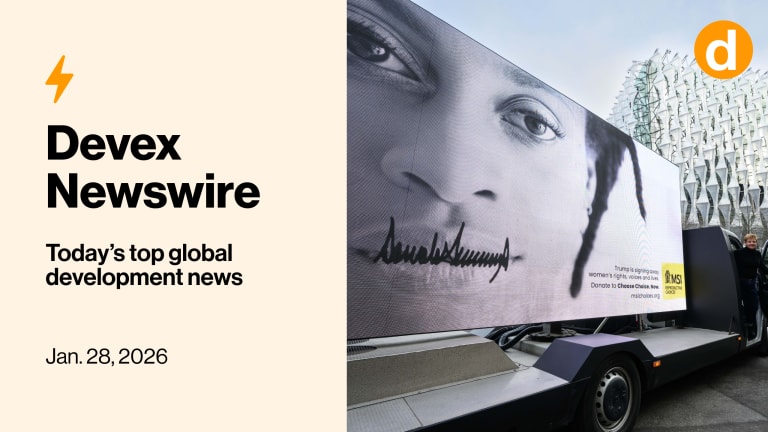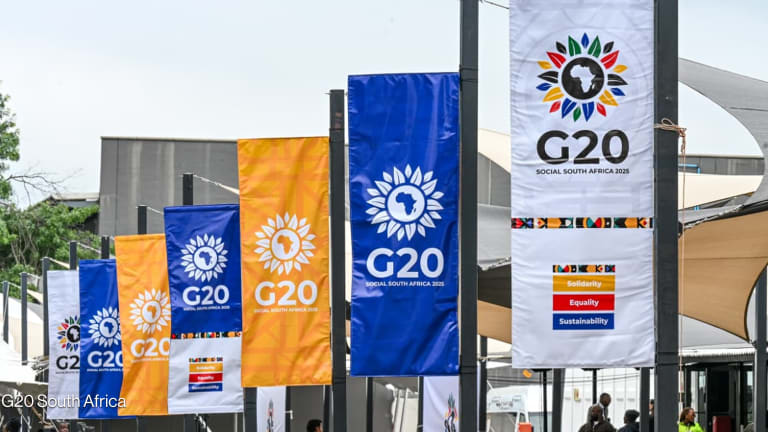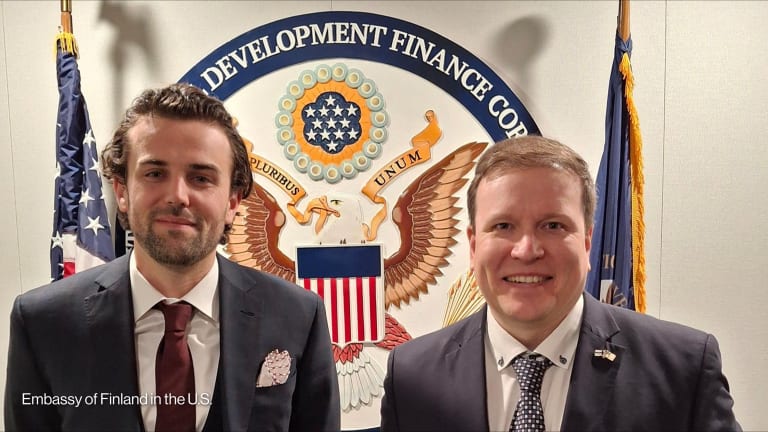
BRUSSELS — Thousands of people are set to gather in Brussels, Belgium, this week for the annual European Development Days, one of Europe’s largest development summits, which this year focuses on addressing inequality.
“Inequalities are the cancer which are consuming our society,” Stefano Manservisi, director-general of the European Commission’s development department, told Devex.
“This is creating antagonism, this is creating racism, this is creating fears and this is blocking people’s hopes.”
Devex sat down with the Italian in his office last week to discuss why the EDD format is a work in progress, and why it represents a good deal for organizers and participants.
“I invented [EDD] in 2006,” Manservisi said, also acknowledging the contribution of the European Union’s then-development commissioner, Louis Michel. “I know what I’m talking about.”
The conversation has been edited for length and clarity.
What advice would you give to someone attending EDD for the first time about how to get the most out of the event?
The EDD are still in a shape which is closer to the World Bank’s Spring Meetings, rather than the Paris Peace Forum. It is a political event, in the sense of calling on Europeans and non-Europeans to talk about the key development policy challenges and issues from a European perspective.
The structure is two-thirds classical. You have the speeches of the big hats, then all the bilaterals. The second dimension is the incredible number of panels in order to allow people who are interested to go and listen, where there are questions etc. — pretty much World Bank-style. The third component — which is still underdeveloped, if I may say so — is the marketplace.
The marketplace so far is not structured to allow [people] to present projects for investors ... It’s more a sort of marketplace to showcase, which can also create ideas. It happens that then people are matching [with funders], but this part is not there yet, objectively. I think we should evolve in this direction.
Stands at EDD range from costing nothing, aside from carbon offset, for 3 square meters, to €4,000 for a 36 square meter cluster. What do you say to the criticism that the cost of EDD is prohibitive for smaller NGOs?
I’ve never seen a project be rejected because the partner was unable to pay. It was always the quality. If there is some problem of financing the presence of somebody, if the project is good, I ask my colleagues to come to me and then to see if we can do something ...
“[We are saying] that we can be innovative; that we have a European way to look at sustainability; that we can be attractive.”
— Stefano Manservisi, director-general, European Commission development departmentIf I would publish what is the cost of the European Development Days for the output, frankly speaking, it’s more or less what an NGO does in organizing its own event. [A commission spokesperson told Devex the total budget of the event is around €3 million, or $3.36 million].
This is a formula to have policymakers talking and giving indications. It’s not talking to ourselves. It is sending messages: That Europeans are committed [to development] — not only do we say, “we are the biggest [donor],” but we are committed. [We are saying] that we can be innovative; that we have a European way to look at sustainability; that we can be attractive — there is competition for centrality in this multipolar world.
We are attractive. People are queuing to come here now.
You are also launching a manifesto on culture and development at EDD. What’s that about?
We have done a number of programs, thinking and actions, which are connecting development and culture. So what we want to do at the end of this period is to wrap up a bit. To gather together [in Brussels just prior to the EDDs], artists, professionals of developing countries, to have their correspondence in the European culture sector — culture producers, artists, organizers, opinion-makers.
They will produce a manifesto, which will be a sort of orientation in order to structure what we are doing in connecting culture and development, and what we can do in the next financial cycle in order to embed this as one of the important pillars of our development policy.
But there is no money in this sense, obviously, because money for the next financial cycle [2021-2027] is not decided [yet].








